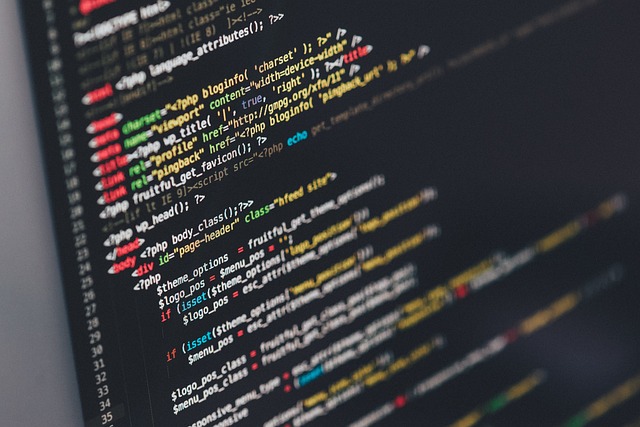The Rising Importance of Security Solutions in Today’s World
In an era defined by digital transformation, increasing urbanization, and growing global unrest, Security Solutions have become an indispensable part of modern life. Whether it’s for personal safety, business protection, or safeguarding digital assets, the demand for advanced and reliable security technologies is higher than ever. From surveillance systems to cybersecurity frameworks, security solutions are evolving rapidly to meet new challenges and threats. Organizations, homeowners, and governments alike are investing heavily in these systems to ensure peace of mind and uninterrupted operations.
Understanding What Security Solutions Encompass
Security solutions are an umbrella term that covers a wide range of products, services, and strategies designed to prevent, detect, and respond to security threats. These solutions can be broadly categorized into two types: physical security and cybersecurity.
Physical Security
Physical security solutions are designed to protect people, property, and assets from physical threats such as theft, vandalism, or intrusion. These include:
-
Surveillance Cameras (CCTV): A fundamental component of physical security that helps monitor activity in real time or through recorded footage.
-
Access Control Systems: These systems regulate who can enter or leave specific areas using tools like keycards, biometrics, or PIN codes.
-
Security Alarms: Alert systems that notify authorities or property owners in the event of a breach.
-
Security Guards: Trained personnel tasked with maintaining order and ensuring that security protocols are followed.
Cybersecurity
As our lives become increasingly digital, cybersecurity solutions are essential to protect against hacking, data breaches, and malware. These include:
-
Firewalls and Antivirus Software: Basic but essential tools that defend against unauthorized access and malicious software.
-
Encryption: Protects sensitive information by converting it into unreadable formats unless accessed with proper credentials.
-
Identity and Access Management (IAM): Ensures that only authorized individuals can access sensitive systems or data.
-
Security Audits and Penetration Testing: Regular reviews and simulated attacks help identify vulnerabilities before they can be exploited.
Why the Demand for Security Solutions Is Growing
Several factors are contributing to the surging need for effective security measures:
Increasing Crime Rates
Urban centers across the globe are experiencing rising crime rates, including burglary, theft, and vandalism. As a result, both residential and commercial property owners are turning to advanced security solutions to deter criminals and protect their premises.
The Digital Shift
With businesses and individuals storing vast amounts of data online, the risks associated with cyber threats have multiplied. Cybersecurity solutions are no longer optional—they are a necessity to protect intellectual property, customer data, and financial information.
Regulatory Compliance
Governments and industry bodies now mandate specific security standards for organizations that handle sensitive data, such as healthcare, banking, and e-commerce. Implementing robust security solutions is not just good practice; it’s also a legal requirement.
Remote Work Culture
The global shift to remote work has introduced new security challenges, including unsecured home networks, unauthorized access to corporate systems, and the use of personal devices for work. In response, companies are investing in secure virtual private networks (VPNs), multi-factor authentication (MFA), and cloud security solutions.
The Role of Technology in Advancing Security Solutions
Technological advancements are revolutionizing how security solutions are developed and deployed. Here are a few technologies leading the charge:
Artificial Intelligence (AI) and Machine Learning
AI is being used to analyze vast amounts of security data to detect unusual patterns and potential threats in real-time. Machine learning algorithms can improve the accuracy of threat detection systems, making them more effective over time.
Internet of Things (IoT)
IoT devices such as smart cameras, door sensors, and alarm systems are becoming integral parts of modern security setups. These devices can communicate with each other and be monitored remotely via smartphones, offering users unprecedented control and convenience.
Cloud Computing
Cloud-based security solutions offer scalability, flexibility, and cost-effectiveness. Organizations can store surveillance footage, security logs, and access data on the cloud, making it easier to manage and retrieve when needed.
Blockchain Technology
While still emerging in the security space, blockchain offers enhanced transparency and traceability, which is especially useful for secure transactions and identity verification.
How Businesses Benefit from Implementing Security Solutions
For businesses, investing in effective security measures is more than just a protective action—it’s a strategic one. Here are some key benefits:
-
Loss Prevention: Theft, fraud, and data breaches can result in significant financial losses. Security solutions help minimize these risks.
-
Employee Safety: A secure environment boosts employee morale and productivity.
-
Customer Trust: Clients are more likely to do business with companies that take data protection seriously.
-
Business Continuity: Security measures ensure that operations can continue even in the face of threats or breaches.
Home Security: Peace of Mind for Families
Homeowners are increasingly adopting smart security systems to protect their loved ones and property. Solutions such as doorbell cameras, motion detectors, and smart locks provide real-time updates and remote control via mobile apps. As a result, families can monitor their homes even while away, deterring intruders and ensuring safety.
Customizing Security Solutions to Meet Specific Needs
One of the key advantages of modern security offerings is their customizability. Security service providers can tailor systems based on the unique needs of their clients—whether it’s a small business, a residential complex, or a government facility. Custom solutions may include integrating various systems into a central platform, providing training to users, and offering round-the-clock monitoring services.
Future Trends in Security Solutions
The future of security is dynamic and constantly evolving. Here are some trends to watch:
-
Biometric Authentication: Fingerprints, retina scans, and facial recognition are becoming standard for both physical and digital access.
-
Predictive Analytics: Security systems will not just detect threats—they will predict them using advanced data analytics.
-
Autonomous Drones: Used for patrolling large areas and capturing high-definition surveillance footage without human intervention.
-
Privacy Enhancements: As surveillance becomes more advanced, ensuring privacy through anonymization and ethical data usage will become increasingly important.
Conclusion
In today’s fast-paced, interconnected world, the role of Security Solutions cannot be overstated. Whether it’s protecting your business assets, securing your personal information, or simply ensuring that your family sleeps safely at night, investing in the right security infrastructure is essential. As technology continues to evolve, so too will the tools we use to stay safe. From traditional surveillance systems to cutting-edge AI-driven analytics, the future of security is not just about protection—it’s about empowerment.
By staying informed and proactive, individuals and organizations can harness the power of modern Security Solutions to create safer, smarter, and more secure environments. Whether you are starting from scratch or upgrading existing systems, now is the time to assess your security needs and take decisive action.







